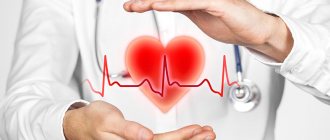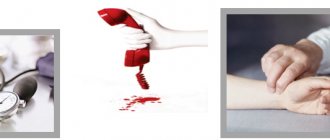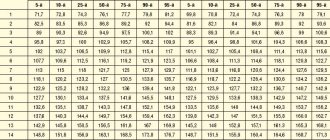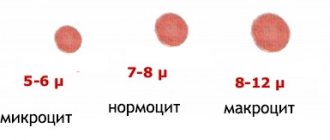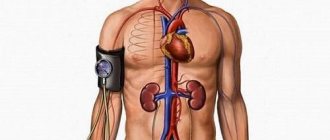Arterial hypertension (AH, arterial hypertension) is a pathological condition that leads to increased blood pressure, as a result of which the structure and function of the arteries and heart are disrupted.
Medical statistics claim that 30-40% of the world's inhabitants suffer from hypertension. Among people over 65 years of age, the disease is registered in 70%.
1
ABPM in the diagnosis of hypertension
2 Diagnosis of hypertension at MedicCity
3 Diagnosis of arterial hypertension
Hypertension significantly affects the quality of life: it causes attacks of headaches and dizziness, and affects performance. With long-term hypertension, irreversible changes occur in human organs and systems that threaten not only health, but also life itself.
Target organs for arterial hypertension:
- heart (left ventricular hypertrophy, heart failure, angina, myocardial infarction, etc.);
- brain (hypertensive encephalopathy, ischemic or hemorrhagic stroke, dementia);
- blood vessels (reduced arterial patency, aortic aneurysm);
- eyes (hemorrhages, retinal lesions, blindness);
- kidneys (renal failure).
1 ABPM for hypertension
2 ABPM for hypertension
3 ECHO-CG for hypertension
Causes of stage 2 hypertension
Narrowing of the lumens of blood vessels and slowing of blood flow are traditionally diagnosed in middle-aged and elderly people. But it is not only the passing years that cause the violation. Hypertension occurs against the background of factors contributing to the development of the disease. This:
- heredity (the more close relatives suffer from high blood pressure, the higher the likelihood that you will encounter this problem);
- lack of physical activity (physical inactivity “relaxes” the blood vessels, making them inelastic and fragile, worsens cardiac activity);
- bad habits, which include not only smoking and alcohol abuse, but also excessive consumption of salt, which retains fluid in the body;
- atherosclerosis (such a disease can be not only the cause of hypertension, but also its consequence);
- hormonal changes (pregnancy and menopause are periods during which women most often experience symptoms characteristic of arterial hypertension for the first time);
- endocrine diseases;
- kidney and genitourinary diseases;
- osteochondrosis;
- vascular disorders;
- malignant and benign tumors;
- stress of a regular nature.
Obesity is the cause of the development of hypertension (every extra kilogram is a load on the heart, blood vessels, and internal organs)
Types of arterial hypertension
The classification of arterial hypertension is based on various parameters, one of which is the origin. Based on origin, the patient can be diagnosed with:
- Primary arterial hypertension is caused by many factors, which are being elucidated by specialists all over the world. However, it has been reliably established that the basis of this disease is unfavorable heredity in combination with the factors acting on it. The vast majority of patients - about 90% - suffer from this type of arterial hypertension. This disease has a second name – essential hypertension;
- Secondary arterial hypertension manifests itself when organs involved in the regulation of blood pressure are damaged, therefore the disease is otherwise called symptomatic arterial hypertension.
Symptoms
The main symptomatic manifestations of the disease appear at the beginning of the development of hypertension (at stage 1). Blood pressure periodically rises, headaches, a feeling of nausea, tinnitus and black spots before the eyes appear, problems with sleep begin, and the heartbeat quickens from any exertion.
But if at stage 1 of the disease the upper pressure only sometimes rises to 140-159 mm Hg, and the lower to 90-99 mm Hg, then stage 2 hypertension is a pressure of 160-180/100-110 mm Hg .st. It becomes almost permanent, causing a person a lot of inconvenience and depriving him of the opportunity to live a full life without the help of medications. At the second stage, new symptoms are added to the general symptoms characteristic of phase 1 hypertension. This:
What is a hypertensive crisis
- feeling of chronic fatigue, including immediately after waking up;
- low threshold of emotional excitability;
- nausea, during a crisis turning into vomiting;
- pulsation in the head area;
- heart failure;
- increased sweating;
- hyperemia of the skin of the face and upper body;
- deterioration of vision, development of fundus pathologies;
- swelling of the face, worsening in the morning;
- chills, numbness of fingers and upper extremities;
- albumin proteins appear in the urine (microalbuminuria);
- arterioles narrow;
- the walls of the ventricle become denser, trying to resist blood flow;
- if the disease has caused pathological changes in the functioning of the kidneys, symptoms such as uncontrollable urination at night, swelling of the feet after sleep, cloudy urine or a pink color appear.
At this stage, hypertensive crises occur, during which the pressure rises by 59 units. Attacks last for several hours and threaten serious consequences in the form of a heart attack, cerebral, pulmonary edema or stroke. Signs of damage to target organs (brain, heart, eyes, kidneys) become obvious. Treatment should begin immediately after the first manifestations of the disease are detected. This will help cope with further destruction of organs and systems and improve the patient’s well-being.
Important! The diagnosis of arterial hypertension of the 2nd stage can also be made in patients whose blood pressure falls within the pressure range at stage 1 of the disease. Doctors focus not only on the tonometer readings, but also on the degree of target organ damage. If the brain, heart, eye vessels, kidneys are damaged, the disease progresses to stage 2.
Consequences of violation
Why is this phase of hypertension dangerous? There are several complications, and complications that pose a real threat to life and health.
- If stage 2 arterial hypertension is diagnosed, the risk of stage 3 and stage 4 of the disease becomes as high as possible.
- The likelihood of developing a hypertensive crisis, which can result in a heart attack and stroke, also increases.
- The heart experiences constant stress, which leads to heart failure and other disorders.
- Almost every hypertensive patient whose disease has progressed to the second stage is diagnosed with atherosclerosis, in which the vessels are clogged with plaques that impede blood flow.
- The mechanism for the development of kidney and liver pathologies associated with poor vascular patency is triggered.
A common complication of hypertension is damage to the blood vessels of the eyes, which lead to deterioration of vision.
Stage 2 hypertension can develop over years (benign form) or rapidly progress to the next stage (malignant form). In the second case, people sometimes do not have time to take care of their health and stop the process, which leads to irreparable consequences, including death.
The danger of high blood pressure
The main danger of hypertension is its complications, leading to disability and death.
The most severe complications:
- from the heart - heart attack, development of arrhythmia, heart failure;
- in the brain - stroke, loss of memory and intellectual abilities (dementia);
- from the eyes - severe vascular disorders in the retina;
- kidney – the occurrence of failure;
- vessels - aneurysm (sac-like expansion) of the aorta, the rupture of which leads to almost instant death.
Diagnostic measures
A treatment regimen is drawn up by a cardiologist after a comprehensive examination, identifying pathologies in target organs, determining the form of the disease and the causes that led to the disorder. But the main sign remains the indicators of systolic and diastolic pressure. To determine these data, studies are carried out on:
- pressure stability throughout the day;
- degree of risk of developing complications of the disease;
- exclusion or confirmation of increased blood pressure as a complication of other ailments;
- identification of factors contributing to hypertension;
- identification of pathological changes in other organs and systems.
The first thing the doctor does is measure your blood pressure and give recommendations for self-diagnosis at home. For hypertension, blood pressure is measured 2-3 times a day for a week, recording all data in a special diary. This allows the doctor to make an accurate diagnosis and take into account the peculiarities of the course of the disease. The physical examination is complemented by the collection of data obtained from a patient interview.
Additionally, daily blood pressure monitoring is prescribed using a special device in a hospital setting. An obligatory part of the diagnosis is an electrocardiogram and ultrasound of the heart. The techniques help to see any type of tacharrhythmia and assess the thickness of the ventricular walls. If abnormalities in the functioning of the internal organs are suspected, a magnetic resonance therapy study is carried out, and ultrasonography is prescribed to determine the size of the kidneys.
Diagnosis of arterial hypertension
With this disease, irreversible changes occur in the body that require immediate treatment. Diagnostics takes place in several stages and includes an examination by a specialist and collection of materials for making a diagnosis.
Diagnosis of a patient begins with measuring blood pressure; at least three measurements are required to confirm the diagnosis. If high indicators are obtained, the patient is sent for laboratory and instrumental studies:
- electrocardiogram;
- general and clinical urine analysis;
- biochemical detailed blood test;
- Ultrasound of the heart and internal organs.
The examination regimen is selected by the doctor individually for each patient. If the doctor assumes that the patient has secondary arterial hypertension, the classification of which is extensive, additional studies are carried out on organs whose dysfunction could cause arterial hypertension.
Features of treatment
Every hypertensive person is concerned with the question of whether arterial hypertension can be cured. Traditional methods are powerless here. Treatment is complex and depends on the form of the disease, the condition of the internal organs and concomitant pathologies. Cardiologists prescribe a number of drugs that complement and enhance each other’s effects in order to bring the tonometer readings closer to 130/80 mmHg. This:
- Angiotensin-converting enzyme inhibitors;
- Beta blockers;
- Angiotensin 2 antagonists;
- Calcium channel blockers;
- Diuretics;
- Antagonists of Renin.
Drugs and their dosage are prescribed strictly individually. This takes into account the patient’s age, weight, medical history and blood tests. It is necessary to strictly adhere to the therapeutic regimen, without independently changing one drug for another, canceling treatment or increasing the number of tablets. When taking many antihypertensive drugs, an addiction syndrome occurs, so abrupt withdrawal can lead to a hypertensive crisis.
Important! The prognosis of therapy is not always favorable. It depends on the characteristics of the course of the disease, concomitant disorders, and the timeliness of treatment started. What are the risks of stage 2 hypertension? Risk 2 is disability.
Prevention of arterial hypertension
Giving up bad habits and normalizing lifestyle are the basis for preventing hypertension. Knowledge of the principles of preventing hypertension allows you to prevent the disease, facilitate its course, and also eliminate possible complications. Experts distinguish between primary and secondary prevention.
Primary prevention is to prevent the development of hypertension. People at high risk of developing arterial hypertension should not only fight bad habits and adhere to the principles of proper nutrition, but also monitor their physical activity.
Secondary preventive measures are carried out for people with an established diagnosis, for example, gestational hypertension. The efforts of doctors and patients are aimed at preventing complications. Secondary prevention consists of two components: arterial hypertension (treatment with tablets) and non-drug treatment.
Doctors at the Yusupov Hospital have extensive experience in treating arterial hypertension. The quality of services provided in the hospital is at the European level. All diagnostic and treatment procedures are performed using the latest medical equipment. The rooms are equipped with maximum comfort for patients. You can make an appointment with a doctor by phone.
Stage 2 hypertension and disability
Manifestations of hypertensive disease are not always completely removable. Especially often, people with a malignant form of the disease face the fact that treatment does not bring the desired effect. In this case, the person loses the ability to work fully and receives the status of a disabled person with a number of restrictions. The patient is prohibited from:
- work in extreme conditions;
- work more than 7 hours a day;
- be at heights and at high temperatures while working;
- experience stress and increased physical activity.
Disability, if the disease does not progress to stages 3 and 4, is temporary and is removed when the patient’s condition improves. If complications do not allow a full recovery, a person can work only in certain conditions that take into account the specifics of the course of the disease, for example, remotely.
Additional recommendations
The risk of relapse of the disease remains high even after recovery. This risk can be minimized by adhering to certain restrictions. The list is small and will be useful not only for hypertensive patients, but also for people who care about their health.
The bathhouse is a taboo for hypertensive patients. A sharp change in temperature can lead to hypertensive crisis and other consequences
Necessary:
- Quit smoking and alcohol, which negatively affect the condition of blood vessels.
- Introduce regular physical activity into your daily routine, as agreed with your doctor.
- Limit salt intake to a minimum.
- Eliminate stressful situations. If this is not possible, it is necessary to take sedatives that calm the nervous system.
- Minimize the amount of salt in your diet. Exceeding the permissible doses of this product leads to fluid retention in the body, which leads to changes in blood pressure and deterioration of the heart and circulatory system.
- Lose weight. Considering that every excess kilogram adds 2 mmHg. to the numbers on the tonometer. This means that losing weight in this case is not a tribute to the fashion for slimness, but taking care of your own health.
- Be sure to take the hypertensive medications prescribed by your doctor. It is important to do this not only during an exacerbation, but also during remission of the disease.
- When creating a menu, you should pay attention to healthy low-calorie foods rich in vitamins, fiber and microelements. The most beneficial for hypertensive patients are: vegetables, fruits, dried fruits, cereals, low-fat dairy and fermented milk products, lean meats and fish. You should avoid fatty meats, butter and margarine, smoked foods, and preserves.
Hypertension is a disease that does not disappear on its own. Only an integrated approach can achieve lasting results and improve the patient’s condition, bringing it closer to normal levels.
Forecast
Arterial hypertension is a progressive pathology. Over time, it leads to the development of severe complications that can cause the death of the patient. Among the most common lethal complications are myocardial necrosis, decompensated heart and vascular failure, hemorrhagic stroke, and impaired renal excretory function.
A persistent increase in blood pressure greatly increases the risk of cardiovascular complications. The mortality rate among patients with this disease in the second stage compared to the rest of the population is on average four times higher. First of all, this applies to patients who do not control their blood pressure. People who regularly take antihypertensive medications and follow their doctor's recommendations have a much lower risk of such complications, resulting in a significantly lower mortality rate.
These severe consequences of the disease can only be avoided by paying close attention to your health, visiting a doctor on time and following his recommendations regarding treatment and lifestyle changes.
